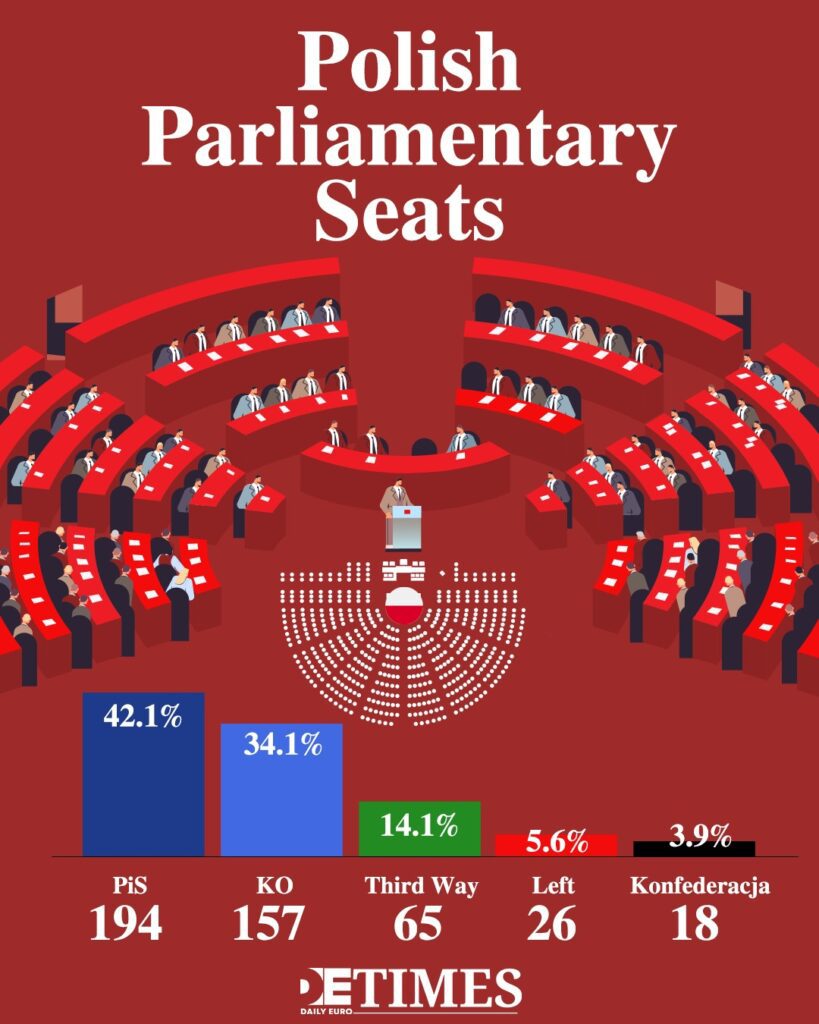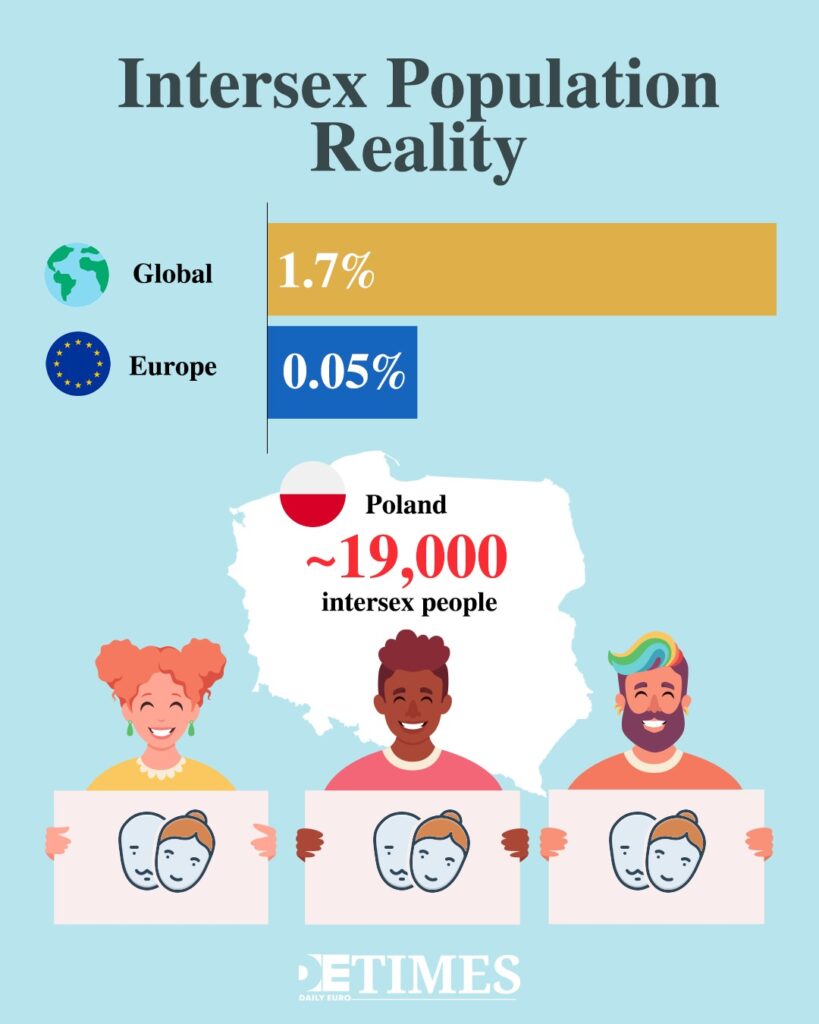Last week, Polish political activist Dawid Szóstak announced his departure from the nationalist Konfederacja party after revealing his romantic relationship with intersex model Michalina Manios. Szóstak and Manios confirmed their partnership in a joint interview with Polish daily Gazeta Wyborcza.
Szóstak previously led a branch of Poland’s National Movement and unsuccessfully ran for parliament with Konfederacja. Manios, who was raised as male until age 18, gained public attention as a finalist on Poland’s Next Top Model.
Electoral Context of Konfederacja’s Position
In October 2023, Konfederacja secured 18 seats in Poland’s 460-seat parliament with 6.81% of the popular vote. The party attracted roughly 20% of voters under 30, with two-thirds of its supporters being male.
Poland’s recent election achieved 74.4% turnout, the highest since 1989. Konfederacja now sits as the smallest parliamentary group after Law and Justice won 194 seats, Civic Coalition took 157, Third Way captured 65, and the Left obtained 26.

Statistical Reality Behind Personal Stories
Research estimates intersex births at roughly 1.7% of the population, making intersex conditions as common as red hair. However, medical definitions vary widely, with some studies placing the figure at 0.018%.
European data suggests intersex people comprise 0.05% of the continent’s total population. In Poland’s 38 million residents, this would mean approximately 19,000 people with intersex variations.
Recent European research found intersex individuals experience among the highest levels of discrimination in cross-European studies. Medical interventions continue at significant rates, with over 6,800 surgeries on intersex minors recorded in one European country during 2021.

Broader European Political Precedents
Across Europe, personal relationships have triggered political departures.
Hungarian politicians supporting traditional values while sending children to liberal Western universities exemplify common contradictions. Italian leaders condemning immigration while employing foreign domestic staff reveal similar gaps.
The Polish case differs in its public nature. Most politicians quietly manage personal-political tensions. Szóstak’s openness about his relationship breaks this unwritten rule of political discretion.
Medical Understanding Versus Political Rhetoric
Modern medical consensus recognises intersex variations as natural biological differences rather than disorders. Most people with intersex traits receive standard male or female birth assignments and discover their variations later in life.
Poland’s conservative political movements typically oppose progressive social policies while promoting traditional Catholic values. Szóstak’s former party colleagues likely view his departure as abandoning core principles during a time when conservative parties across Europe face similar internal tensions.
Meanwhile, his supporters might praise his authenticity over political calculation. Public figures increasingly benefit from genuine personal brands rather than manufactured political personas, particularly among younger voters who value authenticity.
Learning from Individual Experiences
Rather than viewing Szóstak as an isolated case, observers can examine broader patterns. Conservative movements across Europe struggle when members’ personal lives contradict party orthodoxy. Fixed positions often crumble when confronted with individual human complexity.
Viktor Orbán’s Hungary promotes family values while his relatives study at prestigious Western institutions. Matteo Salvini rails against immigration while employing foreign workers. Marine Le Pen softens anti-EU rhetoric while her party accepts European Parliament funding.
Personal experience consistently outweighs political posturing when individuals must choose between ideology and lived reality. Szóstak simply made his choice more publicly than most European politicians do.
Keep up with Daily Euro Times for more updates!
Read also:
No Love Lost: Tensions in French Homonationalism
Court Trans Ruling Creates New Reality For UK Women
Don’t Say They: Italy Clamps Down on Gender Ideology






